Research

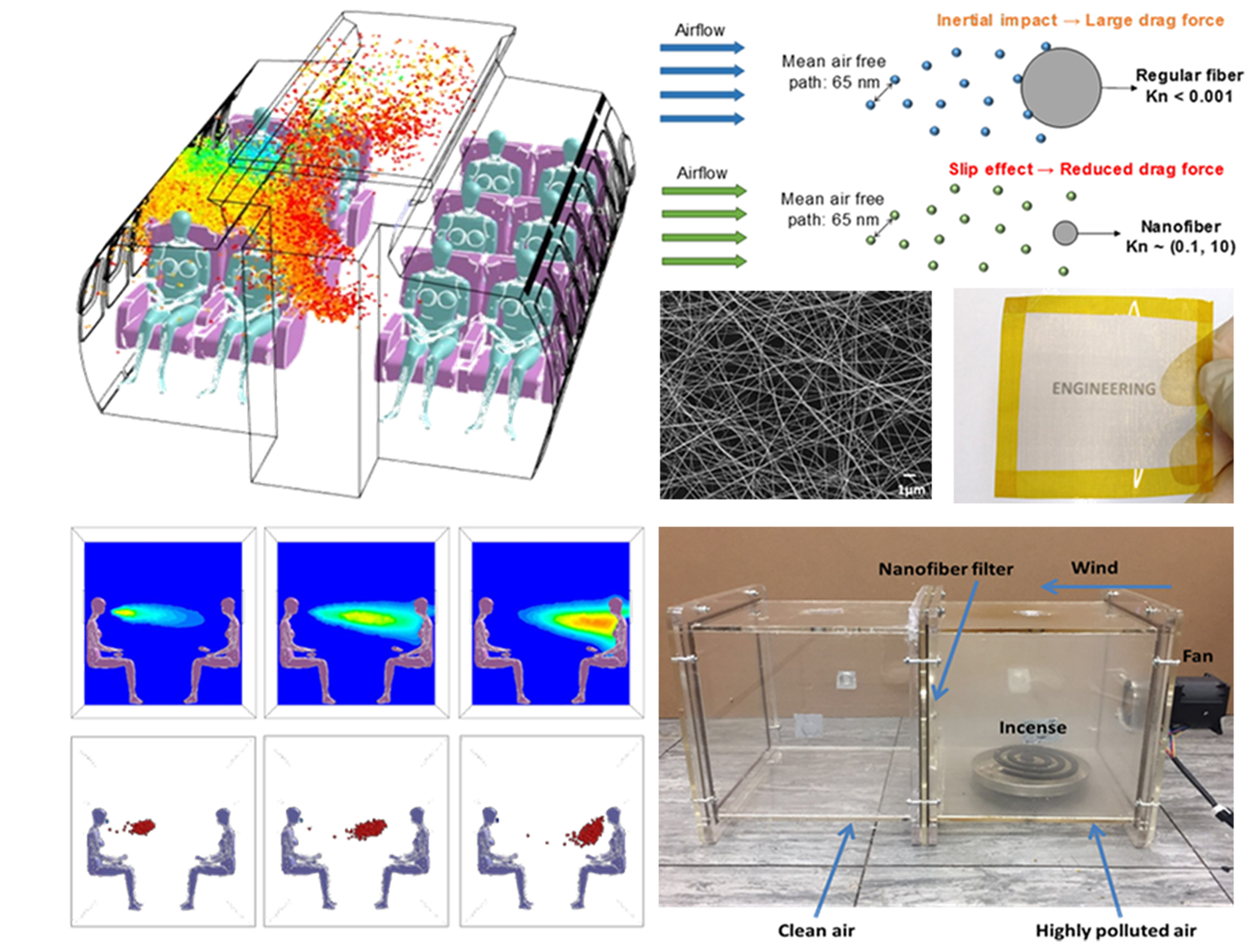
Building Energy and Environment Laboratory
Our research areas include:
Indoor air quality: modeling, measurement, and control technologies for indoor particles of both indoor and outdoor origin.
Aerosol dynamics: computational fluid dynamics simulation, particle dispersion, deposition, penetration, and resuspension.
Airborne infectious disease transmission: infectious particle transport in buildings, hospitals, and commercial airliner cabins.
Energy-efficient buildings: energy-efficient air purification technologies, natural ventilation, and advanced models for thermal comfort.


Sustainable Energy and Materials Laboratory
Transport systems such as cars and trucks play a very important role in supporting everyday life of modern society. Efforts have never stopped since the invention of these systems to improve their energy efficiencies and mitigate the associated environmental impacts. We aim to advance current and emerging energy technologies for transport systems and other applications, for example, fuel cells, batteries, and automobile exhaust abatement. The focus is on the functional materials that are used in these systems with an emphasis in the materials structure/performance relationship. These efforts in fundamental materials research will expedite the development of sustainable energy technologies. Current research topics include hydrogen production, vehicle emissions control, batteries, and fuel processing.

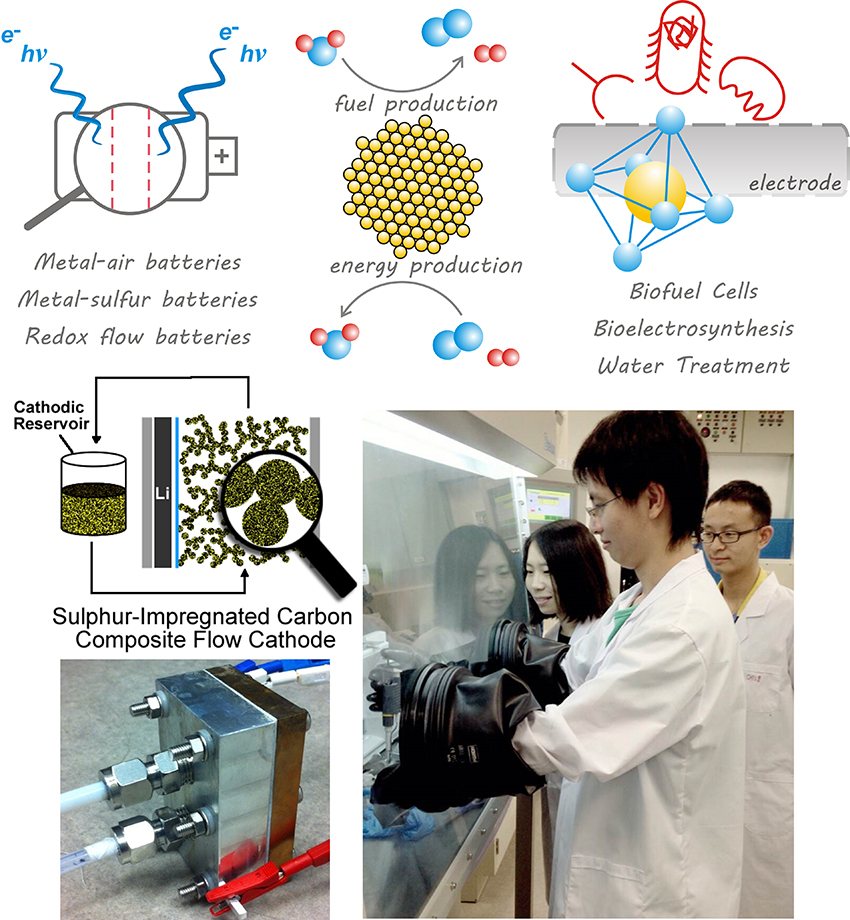
Electrochemical Energy and Interfaces Laboratory
We study fundamental mechanisms and develop functional materials for electrochemical and bioelectrochemical energy storage and conversion. We investigate electrochemical interfaces including battery interfacial chemistry, electrocatalysis, and bioelectrochemical interfaces by employing spectroscopic and microscopic techniques coupled with in situ & ex situ electrochemical characterizations on model material systems. Applying insights gained from these mechanistic studies, we seek to develop material design principles for high-energy, efficient and long-lasting energy storage and conversion technologies for a sustainable energy future.
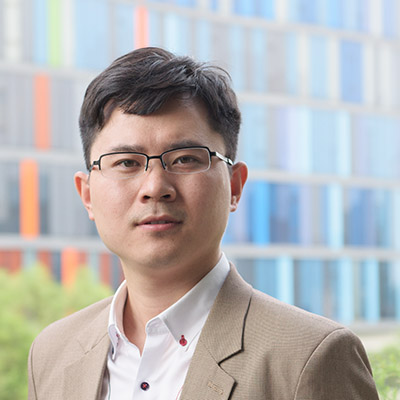
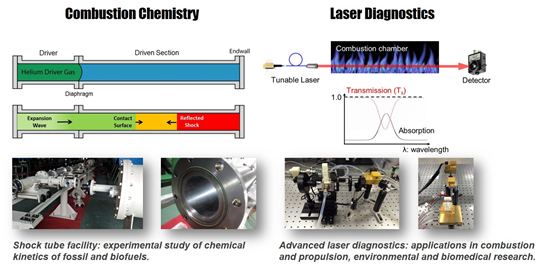
Laser Diagnostics and Combustion Laboratory
Our areas of research include:
Combustion and fuels: study the oxidation and ignition behaviors of traditional and alternative fuels using shock tube/laser absorption techniques.
Optical diagnostics: develop laser-based diagnostics for in situ measurements of various flow field parameters for applications in scramjet, pulse detonation engine, gas turbine engine, coal-fired power plant and other combustion and propulsion systems.
Spectroscopic instrumentation: design ultra-sensitive laser spectroscopic instrumentation for trace gas detection and chemical sensing in atmospheric chemistry, environmental monitoring, industrial process control, and biomedical research.
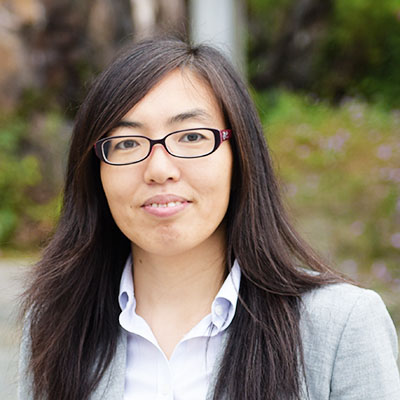

Nano Energy Research Laboratory
The Nano Energy Research Laboratory (NERL) is devoted to fundamentally understand energy and mass transport phenomena at the micro/nanoscale for advanced energy conversion and biomedical applications. Current research activities in the laboratory are mainly in three research directions: Thermoelectrics, Thermal Management, and Micro/nanofluidics. For thermoelectric research, we mainly focus on development of efficient nanostructured thermoelectric materials, fundamental understanding of phonon and electron transport in nanostructured materials, and fabrication of thermoelectric devices for waste heat harvesting. In the area of thermal management, we will explore the boiling heat transfer limits with microstructured surfaces and also develop novel thermal interface materials with low thermal resistance. As to micro/nanofluidic research, we aim to develop novel micro/nanofluidic devices for biomedical applications.


Electrical Power and Control Systems Laboratory
The electric power industry is undergoing a worldwide radical transition that is mainly driven by the significant generation from intermittent renewable sources (e.g. wind and solar) and the growing adoption of electric vehicles.
We explore environmentally friendly solutions that can provide system operator extra flexibility to integrate renewable generation and electric vehicle charging, including energy storage operation, price-responsive demand, and the Flexible AC Transmission Systems (FACTS). The overall objective is to improve the overall efficiency of the next-generation power system while maintaining system reliability and security.


Nano-Energy and Smart System Laboratory
As the development of the Internet of Things (IoT), trillions of widely-distributed devices are integrated for health monitoring, biomedical sensing, environmental protection, infrastructure monitoring, and security. The traditional technology for powering these devices is using batteries, which might not be an optimal solution due to the limited lifetime, difficulties for replacement and maintenance, and potential environmental issues. To provide a sustainable power solution, triboelectric nanogenerator (TENG) has been developed since 2012 for high-efficiency mechanical energy harvesting from ambient environment. The TENG has been demonstrated with some unique output characteristics, such as high-voltage output, fixed charge transfer amount, and high-efficiency for low-frequency energy harvesting. The proposed research in our lab will take advantages of these characteristics to power high-voltage applications, achieve controlled output performance, and effectively utilize the small-amount, low-frequency energy. Besides with TENG, we will also explore mechanical and thermal energy harvesting through newly developed mechanisms. These studies will facilitate applications of the emerging energy harvesters and set foundation for the development of the energy-efficient smart systems. Welcome to contact me for research & collaboration opportunities.

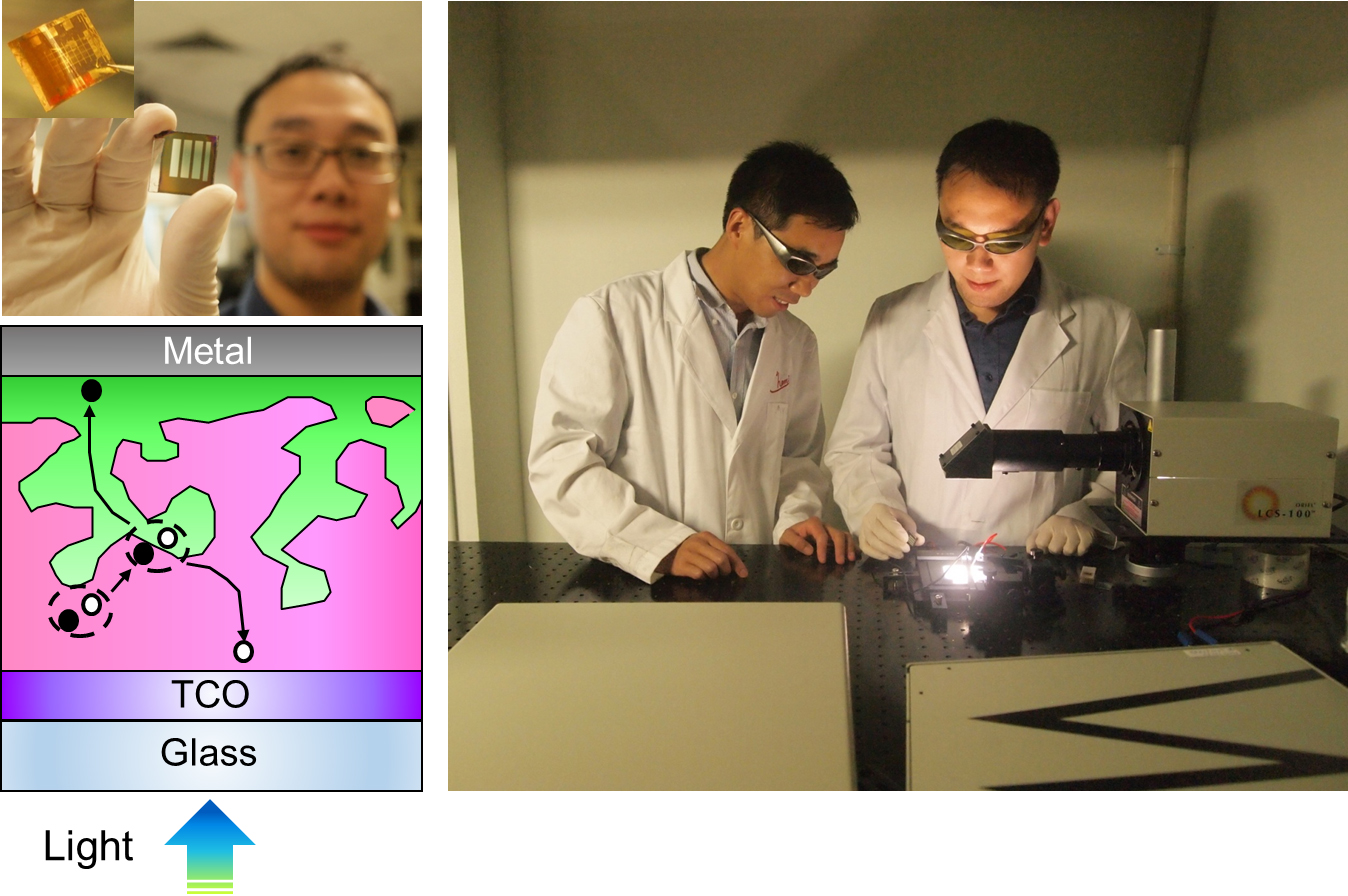
Laboratory of Organic and Nanostructured Optoelectronics
Professor Zhao, Ni’s group is developing solution-processed photovoltaic technologies for low-cost, large-area and light-weight solar panels. Our research covers a wide range of topics, including material and device engineering, spectroscopic study of photophysical processes, as well as electrical characterizations and device modelling.